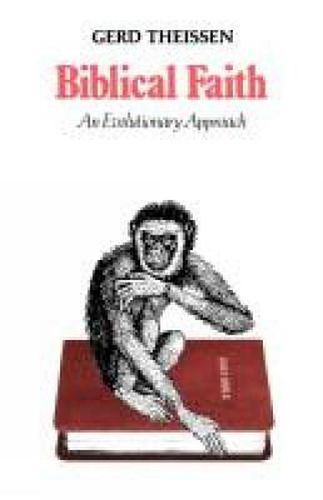Readings Newsletter
Become a Readings Member to make your shopping experience even easier.
Sign in or sign up for free!
You’re not far away from qualifying for FREE standard shipping within Australia
You’ve qualified for FREE standard shipping within Australia
The cart is loading…






This book amply confirms that Gerd Theissen is the most exciting of contemporary German theologians, and could well prove to be for the 1980s what Teilhard de Chardin’s The Phenomenon of Man was for the 1960s. All too often, Professor Theissen argues, scientific criticisms of Christianity, whether literary, social or psychological, stop short before reaching the heart of their investigations, suggesting that the central theological statements of the Christian faith can be made independently of their findings. But what happens if we press the questioning as far as it will go, refusing to leave any privileged ground for religion? As a framework for his critique Professor Theissen uses the theory of evolution, though well aware of its negative connotations. He is not so naive as to associate evolution with naive optimism about progress; progress has brought humanity to the point where it may well destroy the world. Nor does he ignore the difference between biological evolution and human history; the distinction between biological evolution and cultural evolution is crucial to his argument. The result of the investigation surprised even the author. When we refuse to stop short at the innermost sanctuaries of the tradition with modern scientific questioning, the tradition shows up in quite a new, yet still plausible light. And our understanding becomes all the richer. Not only those interested in the relationship between religion and science, but anyone with the slightest curiosity about religious questions, will be fascinated by this book.
$9.00 standard shipping within Australia
FREE standard shipping within Australia for orders over $100.00
Express & International shipping calculated at checkout
This book amply confirms that Gerd Theissen is the most exciting of contemporary German theologians, and could well prove to be for the 1980s what Teilhard de Chardin’s The Phenomenon of Man was for the 1960s. All too often, Professor Theissen argues, scientific criticisms of Christianity, whether literary, social or psychological, stop short before reaching the heart of their investigations, suggesting that the central theological statements of the Christian faith can be made independently of their findings. But what happens if we press the questioning as far as it will go, refusing to leave any privileged ground for religion? As a framework for his critique Professor Theissen uses the theory of evolution, though well aware of its negative connotations. He is not so naive as to associate evolution with naive optimism about progress; progress has brought humanity to the point where it may well destroy the world. Nor does he ignore the difference between biological evolution and human history; the distinction between biological evolution and cultural evolution is crucial to his argument. The result of the investigation surprised even the author. When we refuse to stop short at the innermost sanctuaries of the tradition with modern scientific questioning, the tradition shows up in quite a new, yet still plausible light. And our understanding becomes all the richer. Not only those interested in the relationship between religion and science, but anyone with the slightest curiosity about religious questions, will be fascinated by this book.